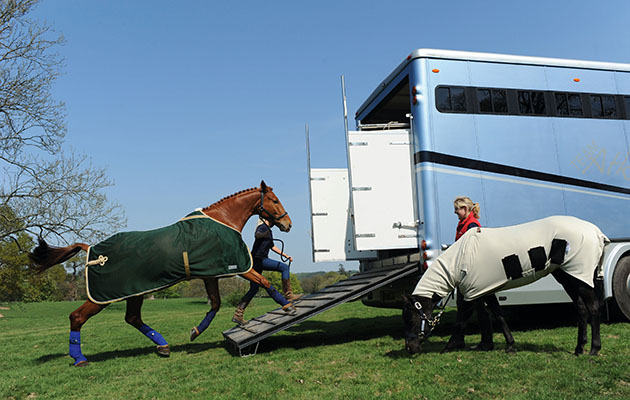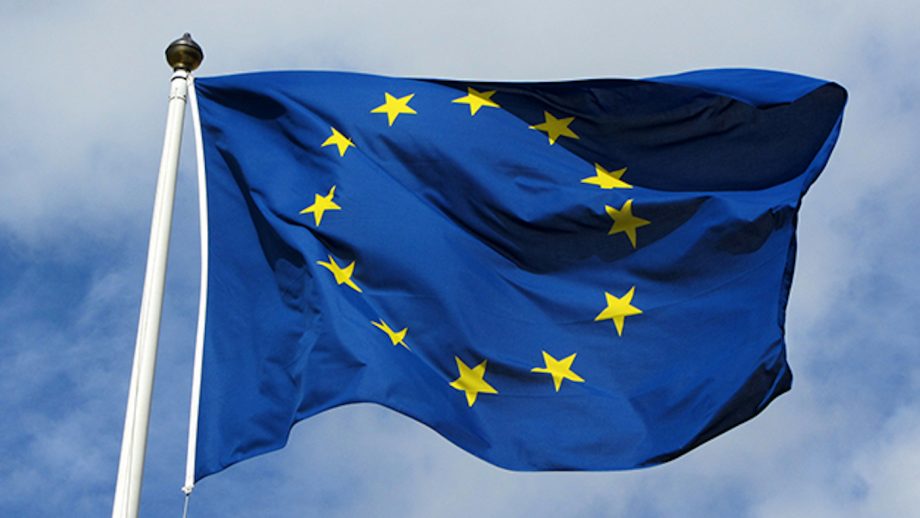H&H speaks to sellers and buyers in the UK and Ireland as well as seeking clarity on the reality of the situation being faced by those in the business
NEW costs and extra paperwork for horses moving between the UK and EU are the post-Brexit reality for the horse industry.
New import VAT requirements add 20% for many people to the price of buying horses from Ireland and EU nations. British sellers may also find they face VAT and/or duty when selling British-based horses to the EU.
The situation is complex, and changing. VAT-registered businesses look likely to be able to account for this on their VAT returns, while VAT is zero-rated for exports in most countries, which may help some. But other businesses and private buyers are in a different boat. Anyone buying or selling horses is also faced with extra paperwork and other costs.
“It’s costing about €170 [£151] on top of normal transport costs, so €350 to €400 to ship a horse,” Wexford-based Monbeg Sport Horses’ Marti Rudd told H&H, adding that this is because of costs incurred with health papers and appointing a customs agent.
“Most worryingly is the 20% VAT to be paid by the buyer in Britain. If you buy a €10,000 horse [£8,882], the VAT and costs, paperwork and delays are adding around €2,500 [£2,220]. That is a lot for most people.”
Ms Rudd said she is “so grateful” to George Mullins Transport for ensuring everything was in place to ship horses safely without cutting corners, but added that the knock-on effects of Brexit delays are costing people.
“We have been waiting since the beginning of January to ship horses and they have only gone today [20 January]. That means we couldn’t put other horses in those stables. We don’t charge those clients for the extra time, and while they are here, we treat them as if they are our own.”
She said she hopes the situation will improve and issues will be ironed out, but is concerned about the impact this could have on the lower end of the market, such as clients who go for private shopping trips for a horse.
“It is going to hurt the pockets of the British buyers more than anything else,” she said.
One rider, who asked not to be named, bought a horse from Germany last month but decided to wait until Covid-related delays at ports had passed, as there was no rush for the horse to come.
“I was shocked to the core [on hearing the extra costs],” he said.
He is awaiting answers on details of the costs and is also querying how the margin scheme – whereby horse purchases work in a similar way to second-hand cars in that VAT is only payable on the value added to goods rather than the total amount – will work alongside the new regulations.
In more positive news, major UK-based auction houses are reviving the “docket scheme” for EU and Irish horses, which pre-dates the free market, whereby they act as the importer so account for import VAT without this hitting buyers or sellers.
Awaiting answers
THOSE moving horses in or out of the country temporarily, such as for competition or breeding, may also find themselves facing costly outlays in the form of financial security or a deposit to cover import VAT and duties. This can vary, with the amount, time frame for the money’s return, and whether this involves money moving, a form of bond, or being accounted for on a VAT return.
“We have warned for months that the conclusion of the free trade agreement does not mean everything carries on as before; far from it, as the UK’s relationship with the countries has fundamentally changed,” said Thoroughbred Breeders Association (TBA) CEO Claire Sheppard in the organisation’s latest Brexit webinar.
“Our very strong guidance is to appoint a shipper, transporter and/or customs agent as the process is much more complex, and to ensure your paperwork is correct to avoid any disappointment and delays.”
She said the new EU animal health law is due to come into effect in April, which will further change the rules, and negotiations are ongoing around this.
TBA trustee and VAT expert Peter Mendham told the webinar the “likelihood is” you will be required to provide some form of financial security for temporary movements.
“The receiving country will want security on any VAT that might become payable if the horse isn’t returned,” he explained.
“The requirements for security will certainly vary between member countries and we would encourage everybody to make sure you speak to your [shipping and customs] agent well in advance of the movement so you are prepared.
“The last thing anybody wants is for the horse to get there and then the security isn’t acceptable. Putting security in place, particularly for higher values, isn’t something you can do overnight. So the more time you have to prepare for that, the better.”
You might also be interested in…

Brexit headache for horse businesses but hope for better times ahead *H&H Plus*

‘Digital passports’ cited as future in post-Brexit international equine travel
A ‘digital passport’ for horses has been put forward as a solution to help smooth cross-border travel continue for competition,

‘No room for complacency’ top FEI doctor warns equestrians
FEI medical committee chairman Dr Mark Hart has reminded the equestrian community of their individual and social responsibility as the

Step forward to secure international equine travel after Brexit: warning failure could cost ‘billions’ *H&H Plus*
A step forward has been taken to help secure the seamless travel of horses between Britain and EU member states

Grooms and riders warned travel insurance may not cover them in Europe
The coronavirus is also having implications for grooms heading to Europe

Work ongoing to clarify post-Brexit horse movement *H&H Plus*


